Interviewer: Hello everyone and welcome. I'm here with Steve Dennis. It's Steve or Steven, either one. It looks like you mostly go by Steve.
Steve: Yeah, Steve is fine.
Interviewer: Awesome. And Steve, uh, Steve is, I don't know, you're the president. How does it, how, I mean, you're the person in charge of the Small Business Finance Association.
Steve: Yes, I'm the executive director.
Interviewer: Executive director, because it's a nonprofit. Is that how, I mean, an association nonprofit, how is it classified?
Steve: Yeah, we are, we are a non profit, um, and you know, all of the money that comes to, into our association goes to advocacy, supporting the industry, educating lawmakers, um, things like that.
Interviewer: Awesome. And Steve, you have a background, just a quick background, uh, you, looks like you graduated from Harvard School, you know, Harvard, that's a big deal, kind of a Harvard graduate in 2003, is that right?
Steve: That's correct. I kind of got into the back door. Um, it was a hockey player. So, you know, they, they, they ignored my, uh, academic credentials mostly. But, uh...
Interviewer: I don't think you get into Harvard even academically without some good, even for athletic reasons, without some good academic scores. And you've been on Capitol Hill, been working on in DC for pretty much all your career. Uh, can you give like a little background and to kind of walk us through, um, that history?
Steve: Yeah, um, you know, I, I worked in, uh, politics, I interned on campaigns in college, um, was just really just loved politics my entire life. Um, and, uh, after college, I, I, you know, had some options. I was considering going to Wall Street or, um, you know, coming down to DC. I, uh, I interned on Senator Johnson's news campaign in New Hampshire, and he offered me a job to come down to Washington and work for him, and it was really exciting as a young kid to come down to D.C. I packed up my, uh, my, my Jeep Wrangler at the time and came down with basically nothing, slept on someone's couch the first couple of months, you know, they're your typical sort of D.C. staffer story, but, um, you know, I got to work on a lot of cool things. I did defense, national security stuff early in my career. Um, and, you know, that's one great thing about working on Capitol Hill is you're exposed to so many issues at such a young age and, um, you know, here in D.C. it really is, as we've kind of learned this week, it's, it's the center of the world in a lot of ways and a lot happens and, um, you know, it's a really interesting experience.
Interviewer: So now that explains your history in politics and why you're there in D.C., but how did you get tied into the small business finance industry? That industry doesn't seem to tie exactly with national defense or with what you were talking about before. How did that you make that transition to where you are now?
Steve: Yeah, I mean, again, you get to expose a lot of issues. I ended up working for a member of Congress who took over the small business committee. He became the chairman of the small business committee on, um, on the house side in Congress and asked me to go help, help run it. So, um, didn't have a lot of small business experience at the time, but, um, like I said, you know, staffers move around and work on different issues. So I was able to work on that committee. That committee has jurisdiction over pretty much every single issue that touches us. You know, small, but the small business side of things. So we did hearings on anything from energy prices to what I work on now, which is alternative finance. At the time, it was really a young industry. Um, folks on Capitol Hill really knew nothing about this sort of new, uh, emerging fintech and alternative finance market. Um, and we started having hearings and roundtables to kind of figure out, all right, well, how does this work with traditional banks? Um, you know, how do, how do these, you know, alternative products work for small businesses? And that's really how I kind of got connected with the folks at, um, that started the association.
Interviewer: So I would love to hear about your take. The interesting thing about this industry is, and this is my main industry that I like to work with, they don't always have a good rap. When I tell other people that sometimes I work with like Merchant Cash, the name I think is more scary than a lot of others, Merchant Cash Advance, and we know there are predatory people in this industry, but your, your perspective, what's your perspective on what's the importance of it? You know, I, I know you're not going to say, oh, I just feel like they're all a bunch of predators. Obviously you're not going to say that. Neither of us feel that way. But what would you say is your feeling on the role of this industry and its future?
Steve: Yeah, look, I mean, you're right. The term merchant cash advance, I think has, you know, it's definitely not. It's not a positive term that when people reference merchant cash, it's usually in a negative way. Um, and you know, we have members that do merchant cash advance, but, um, we don't really use that, that term. We used, you know, revenue based financing. Um, but you know, largely our association, what I love about the SBFA, our members are really committed to best practices. They're really committed to doing things the right way. And that trickles. That trickles down to what I do on a day-to-day basis. You know, my job is to go talk about the industry, to policy makers, regulators, media, and we have a really good story to tell our members are, are really picky about who we allow in our association. So we can go and, you know, look a, a lawmaker or a policymaker in the eye and really tell them the, the positives of the product. Um, you know, kind of what our industry does, how we help fuel small businesses and not focus on the negative. And I think that's really important. It's important that, you know, we as an industry, when we talk about our products, our industry, it's not always negative. We're not always defending the bad practices or the bad actors in our space. But being proactive, going out there, whether it's media, whether it's, you know, testifying for a committee or meeting, with lawmakers. Talk to them about the positives that we do, the positives about the product, um, how a lot of what my members do help everyday small businesses that really are largely ignored, I think sometimes in the, you know, the broader policy picture.
Interviewer: Yeah, it's really interesting when I've interviewed other people, um, on this podcast, as well as talking, you know, just in general day to day conversation with customers. They love repeat customers and they're using these merchants and they have a longstanding relationship with these merchants. And you don't have that unless the merchant's having a good experience.
Steve: Yeah, exactly. They're getting served, and it's helping these businesses, like you said. And they're overlooked a lot of times. They cannot get access, and banks are probably moving away more and more from this market, right? The smaller Yeah, it's more smaller business area.
Interviewer: I think there isn't enough attention, especially here in Washington and state capitals like Sacramento and all the other places on these sort of the mom and pop businesses that are sometimes forgotten.
Steve: You know, you turn on CNBC, you're hearing about AI, you're hearing about all the tech startups and, um, you know, you don't really hear a lot about, You know, the laundromat owner or the local mechanic or, you know, the small mom and pop restaurant. And that's our bread and butter. That's what our industry focuses on. It's exciting to tell that story because it is largely ignored by the sort of sexier, broader topics here in DC and across the country.
Interviewer: So like you said, you know, there's been a lot of change in this industry, but especially, you know, what do you think are the big policies or big things that are coming out? You said, especially, you know, this week, lots of changes. Talk to us about that. What's the most important thing right now? To these people in the industry, the people in the small business finance industry.
Steve: You know, I think it's, it's, I think waiting through, you know, for the first, the past couple of years, what we've primarily been focused on is disclosure. Um, and you know, for a lot of consumer advocates and folks that are pushing for disclosure. You know, I think our view has been we're not opposed to disclosure. I just don't think they really understand the impact that these disclosures have. Revenue based products, you know, attaching consumer style disclosures. One we found is completely misleading to business owners, but but but also it doesn't paint the full picture of a short term product. Um, that's a daily pay product. Um, and and you know, I think we filed a lawsuit against the state of California over the disclosure of law. And, you know, our hope is that, you know, one way or the other, we've made our case, you know, it's, it's not that we're opposed to disclosure or not even that we're opposed to APR disclosure, it's, it's really about the, the technical aspect of how they went about. Forcing us to provide these disclosures and the judge is going to decide one way or the other and hopefully this issue will be over and we can focus on other issues moving forward and, you know, I think a part of that is what you mentioned earlier. It's the perception of the industry, the perception of the product. I think in the future, there's going to be increased regulations on brokers. Um, a lot of, uh, the stories that I hear when I travel across the country to state legislatures, a lot of the problems You know, aggressive marketing and sales tactics or aggressive collections practices. Um, not having access to customer service. Some of the frustrations that, that um, bring a small business owner to complain to a regulator or complain to their lawmaker. It really, it's really broker, a broker at the end of the day. Right. I think we're going to have...
Interviewer: Because they don't have a long term relationship with this merchant typically. They're just like... Not all of them, right? Obviously, we know that some do, but they're that quick. They kind of just get those over to the funder as fast as possible. And then they don't do any underwrite. Yeah, misrepresent, add fees.
Steve: Misrepresent fees, misrepresent the product. So there's a lot of things that are happening kind of on the front lines, and like on the customer interaction phase that really cause problems in the public policy world. You're gonna see that in California this next year. I think there's gonna be a bill introduced that would regulate brokers pretty significantly. Um, and I think you're gonna see expanded licensing for brokers. You saw, you know, in Connect in Connecticut or not in Connecticut, in Virginia, they now have a, a broker registration requirement. Um, I think you could see things like that pop up across the country, but, you know, from our perspective, I mean, I think it's narrative more than anything that's a, we have to go and sort of explain how this industry works from broker to funding, um, in a way that policymakers understand. And again, you know, tell the positives, um, that come out of our space and success stories that, you know, a lot of our members have and can share about the businesses they fund.
Interviewer: Would you say, what do you think is the perception in general of regulators of politicians that are there making the laws? What is their perception of this industry in general?
Steve: Yeah, look, I mean it really depends on where you are, you know I think a lot of regulators well, I should step back a lot of policymakers elected officials You know, they they don't like high cost products. Nobody does. Um, nobody, you know now But you know, if you tell anyone off the street, Hey, this is 150 percent APR product, um, they're like, Oh my God. But, but once you talk to him about it and say like, yeah, because APR is completely misleading. APR isn't a reflection of cost. It's a reflection of the time value of money. And you know, if, if this has paid off over two years, it's like a 20 percent APR if it's paid off in, you know, in 12 months, then it goes up, you know? So when you explain to them the mechanics of APR and the mechanics on how. People, you know, view cost. They get it. And, and I think that's, that's why our association is so important in this, in this whole debate and, and being the sort of the face of the industry, because we have a really good approach. We don't go in and say no, we don't try to hide anything. We don't, we don't go into a state and say, well, we can't calculate this or, um, this, this regulation doesn't work for our industry. Um, yeah, I think that's when, you know, policymakers, regulators get agitated. We go in and say, what problem are you trying to solve and how can we help you solve it? Right.
Interviewer: So, what advice would you give to other funders, brokers, people in the industry that are, I mean, it's a little scary, some people are like, okay, we're not going to just operate in California for now, we're just going to stop doing that, or, yeah, so what advice would you give to them to help them navigate, especially this, with disclosures coming to more and more states? Right. So, yeah.
Steve: I'd say join the SBFA, um...
Interviewer: There you go, number one...
Steve: Right? No, but in all seriousness, you know, I mean, I think it is important. I think the one thing I always tell people when they ask that question, just don't be afraid. Don't be afraid of the regulator. Don't be afraid of the policymaker. They're people. And you got to understand that our industry, when we tell a positive story about our space and we talk about our small business customers and not focus on why we can't. You know, why we can't, um, you know, comply with this disclosure or why we, why we can't do this or why we can't do that. Um, when we talk about our small business, small businesses are the third rail of politics. They're a massive constituency and they're extremely important. And we need to rely on that. We need to tell the positive stories. We need to tell, um, you know, to talk, to talk about specific merchants in, in, in districts and states where. It's been a huge success. Like you mentioned, a lot of our customers are repeat customers. They come back and use the products because it's useful for their business. I think, you know, the number one thing we talk about when we go into an office is, you know, these aren't consumers. Businesses are trying to make money when they see the cost of a product that they're thinking, Hey, I'm going to make five X that. So, you know, I'm not as concerned about the cost. I think what's more important to them, what we found is how quickly can I get the money? Because I, I have an opportunity and I need it, you know, as soon as possible. That's the most important factor. So, um, and it's education, it's, it's, you know, just don't be afraid. Don't be afraid to be involved, you know, politically don't be afraid to get involved in the trade association. Um, and you, you know, there, there's some benefits too. I mean, I think we've seen with regulators, um, you know, they look at the SBFA and they know. from, you know, our interactions. The SPFA members, if you have that seal on your website, or if you're a member, they know that you're doing things the right way, because that's who we surround ourselves with.
Interviewer: So, would you say that, like, as a, I mean, I see, so I've tried to pay attention to some of these laws that come out too, just because I'm interested in the industry and try to be more familiar with it. You're in Washington, D.C., but a lot of this comes from the state level. I mean, there's not really much federal regulation, and maybe it will come that direction. How do you navigate that? Like, going between, okay, I also got a, you know, With each individual state as they're coming up and that's a lot of work for you. Like how do you navigate that?
Steve: Yeah, it's crazy. I mean, sometimes, you know, I mean, we're operating in 10 12 states in a set in a given session. Um, it's a lot of bounce around to crazy state capitals. Um, but yeah, federal federal is different. You know, I mean, I'm sure as everyone witnessed this week, um, you know, Washington is a little dysfunctional right now. So, um, you know, there has been a bill that's been introduced. It's a federal truth and running act bill for small business. It would attach it.
Interviewer: Yeah. Tila regulations to small business customers were obviously opposed to that were opposed to that type of federal mandate, but it's a bill that really hasn't gone anywhere, mostly because.
Steve: Um, you know, the House is now controlled by Republicans. Republicans traditionally oppose, oppose stuff like that. And, um, you know, it just really hasn't gone anywhere. Um, it's also kind of ironic that that bill was introduced in the Senate by Bob Menendez. He's the senator that just got into trouble for, uh, accepting gold bars from, uh... So it's kind of just an interesting twist on that. But, um, you know, one thing federally we're looking at is in every, every, um, industry participant should be focused on a section 1071 of Dodd Frank. Um, For a lot of, uh, for a lot of our industry, they're going to have to comply with that regulation next year, about about a year from now in mid mid October 24. And, you know, it's at its, you know, when you look at it, it's just data collection, right? Um, but it's data collection. CFPB is trying to get into small business finance, which traditionally they haven't been allowed to do. Um, and it's just really unclear how they're going to use this data. So they're going to collect on it?
Interviewer: You know, I'm familiar somewhat, but yeah, I would love some background. I know a lot of people watching won't understand.
Steve: Yeah, it's a requirement that, um, that small business lenders, essentially, and, um, merchant cash advances aren't considered covered products under the rule, will have to collect data on their customers. Racial data, you know, sex, race, address. I mean, just a lot of information that a lot of our members don't collect currently. But they're going to have to provide, and then pricing too, how much, you know, what you're charging for products, and then the CFPB in theory is going to look at this, um, and they're going to make sure that you aren't charging different nationalities or races higher prices than others. Um, it's, it's a, you know, a fairness, a fairness thing. Um, it's just really unclear to us as industry, and we're not opposed to providing data, but how are you going to use that data and what action will come from that data? And that's kind of what, you know, kind of what we're concerned about. Right.
Interviewer: Uh, kind of going alongside with that, along with data sharing. And I'm not sure if you're familiar, this is not, doesn't, this isn't specific toward our industry, but the Corporate Transparency Act starting in 2024. Are you familiar with that one at all?
Steve: Um, a little bit. Yeah. We haven't, we haven't been focused on it, but.
Interviewer: Yeah. I don't know how much it impacts really. I just wonder, like they're always looking, I'm on the due diligence side, the underwriting side, they're trying to find and verify these business, the beneficial owners who is really owning this to make sure it's not fraudulent. And so I was curious that. Ever on the horizon, but for you, nothing to worry about at this point. I don't think so. Not specifically for our industry. Yeah.
Steve: I don't, I don't think so. Not at this time.
Interviewer: Okay. Perfect. I love what you, you and your team is doing at SPFA. I mean, I liked having someone there, right? This industry, I'm investing a lot of time of my own time and my team's time to build good products to help this industry. And I, sometimes I feel like, okay, what if it, you know, what if regulation comes in there and kills it? That's the fear right for me as a you know business owner and I think that's why a lot of these funders So I want to say thank you I appreciate you out there doing this work and this helps me feel more confident that someone's representing this industry So I'm glad you're there. Who do you think some other are there other people are companies specifically not like an association, but or people that you'd like to shout out and say, Hey, you know, this guy's doing really good work. We're really glad he's there representing or anyone else that you think is worth mentioning.
Steve: Yeah. You know, they're, they're for such a small industry. We do have a lot of different trade groups and coalitions that have popped up. Um, but you know, we work really closely, for example, with like electronic transaction association, um, here in DC, they represent the payment side. Um, there, there's a lot of small business, you know, partners that we have, that we work with. You know, I don't can't think of anything anyone specific right now, but um, you know, we're willing to work with anyone You know the equipment leasing association, for example Sometimes we butt heads but sometimes we work really closely on stuff the factoring association is another um that that we work work with Um when when it makes sense to do so,
Interviewer: That's great. Well, you know, this has been great I really appreciate your time steve any final thoughts any final recommendations? You said obviously them joining the sbfa Would be huge. Right. That's helped with good support for you and helps the lobbying efforts. What else can they do?
Steve: Yeah, I mean, I just, I think, um, just, just be really mindful of, of your practices and, and sort of how you're representing the industry. I mean, it's, it's really easy. I think we all sort of learned a lesson when, um, there was a big article series that came out about the space, uh, when Bloomberg published the articles. And really the centerpiece of that was the confession of judgment. And, you know, at the time, no one really thought anything of it, but the C.O.J. Was a really bad practice. And because a couple bad, you know, bad apples were using the C.O.J. In a bad way, it really kind of blew up our space and articles like this can really, um, you know, bad practice. If you practice like this, that that lead to big articles like this, it really can be damaging to the industry. So I just recommend, you know, really do a deep dive. Look at your internal practices. Make sure that everything that you do passes the front page test, meaning that If what you're doing would end up on the front page of like the, you know, the Washington Post that you'd be, you'd be comfortable with it. And, um, you know, that's one thing we do at the SBFA is we have best practices. We make sure that our members are doing things the right way. And then, you know, if, um, you know, media does want to get involved or legislature wants to get involved, you know, we're there to help out on the association side. So.
Interviewer: Yeah, that's pretty much it. Not only thinking about the industry, but also yourself. How would you feel if this is on the front page? It's a really good way. It's a good way to act in life, right?
Steve: Yeah, and I mean that goes to the sales level too. We have a certification that we launched at the time and we've had a couple hundred people go through our certification and it's You know, we have these examples of how, um, salespeople or brokers can get in trouble just by using the wrong terminology. Um, so just really important to focus on that and just to make sure that you're running a good business and, um, you know, pretty, pretty common sense stuff. If you, if you don't, if you don't want anyone to know about it, then it's probably not a good practice.
Interviewer: Probably not a good. Yeah, that's exactly right.





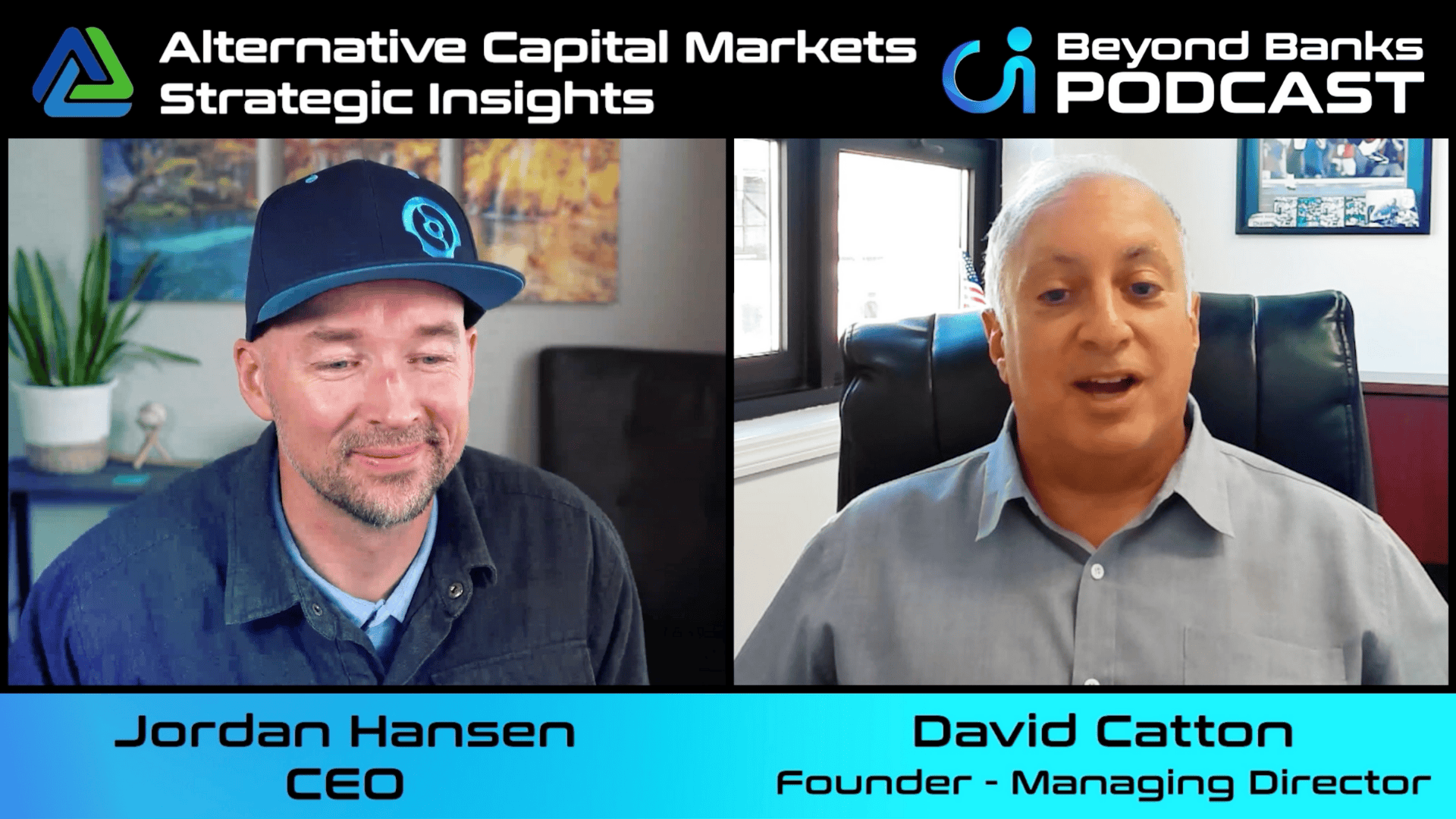
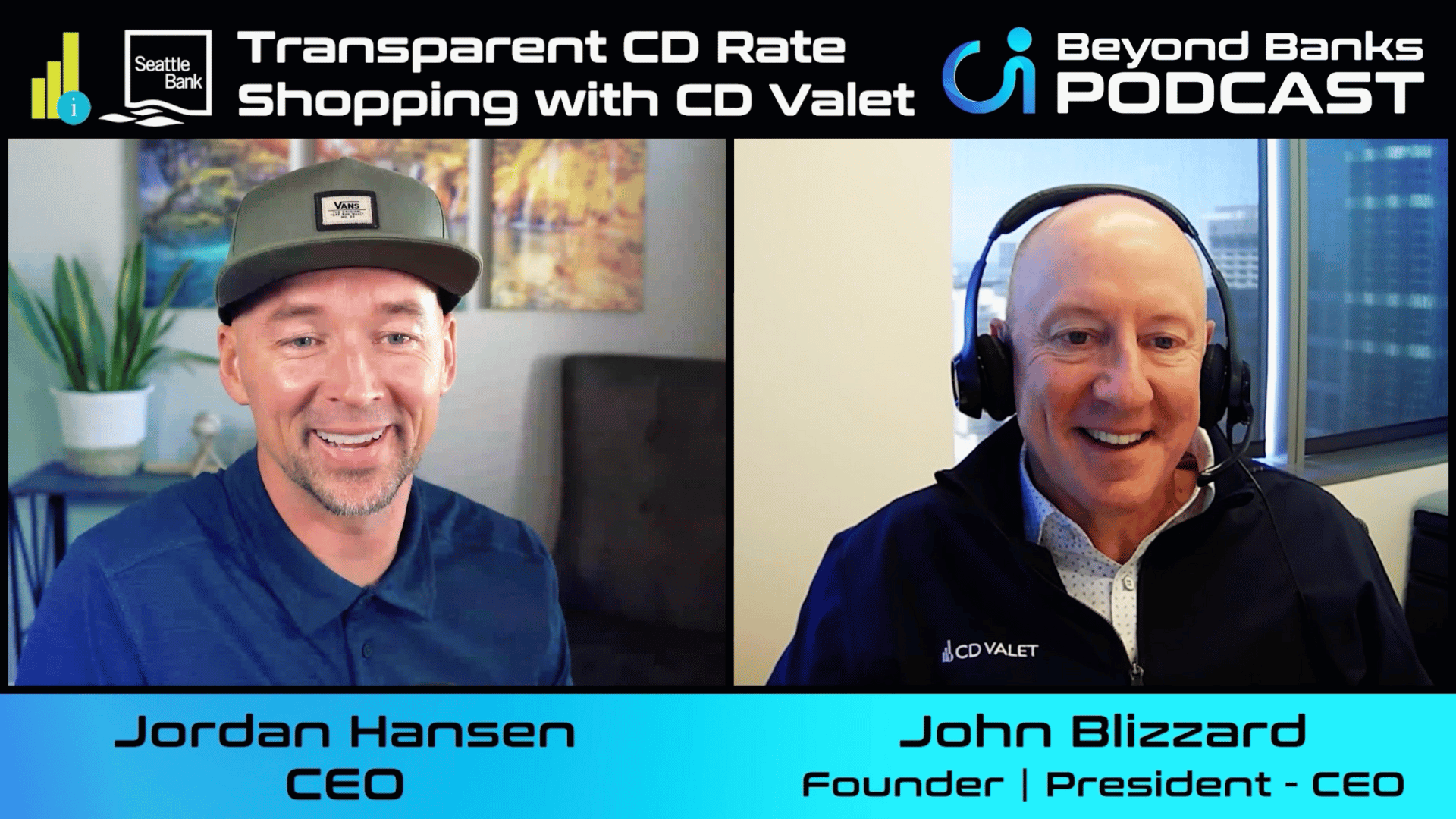




.png)




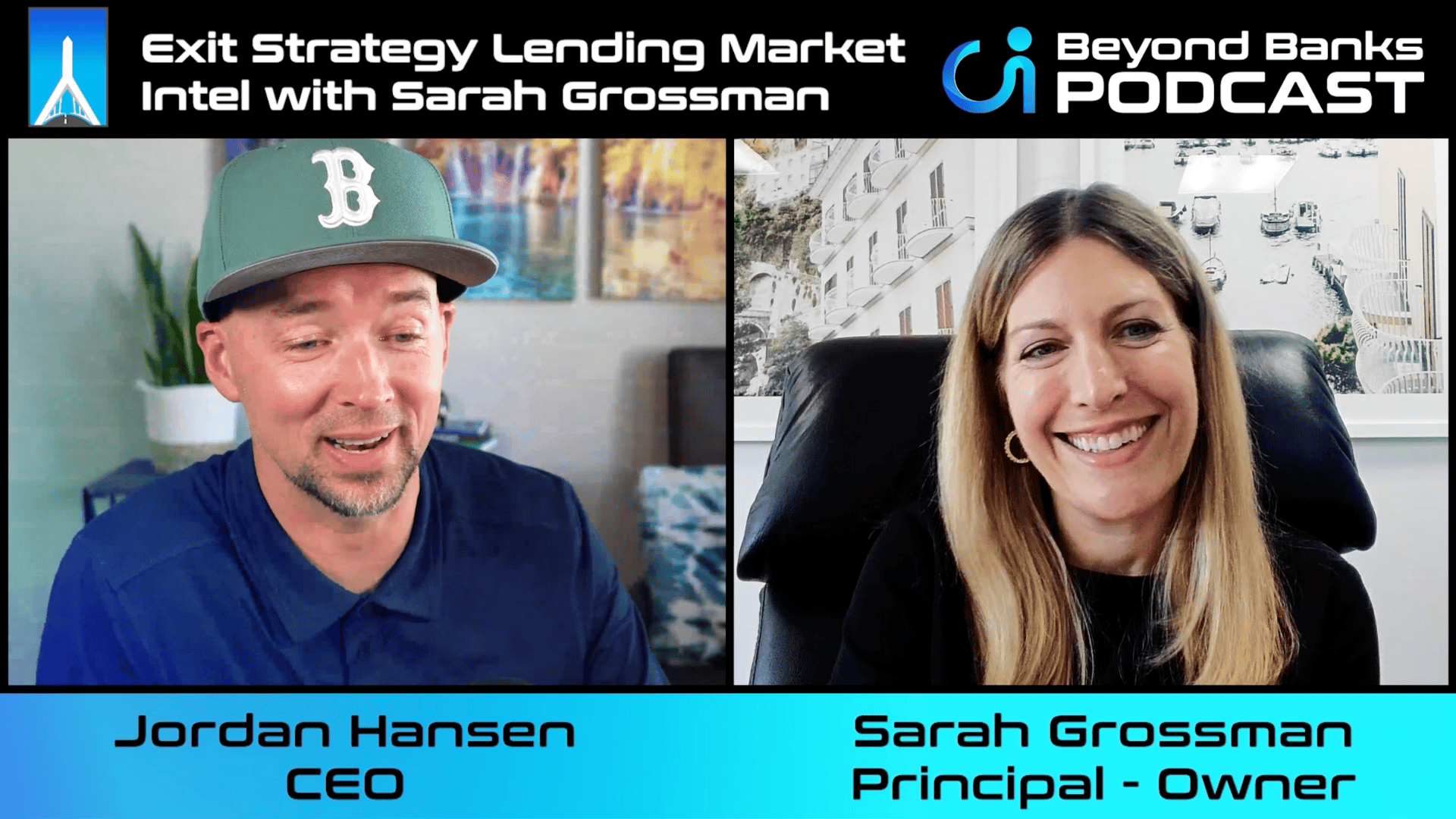
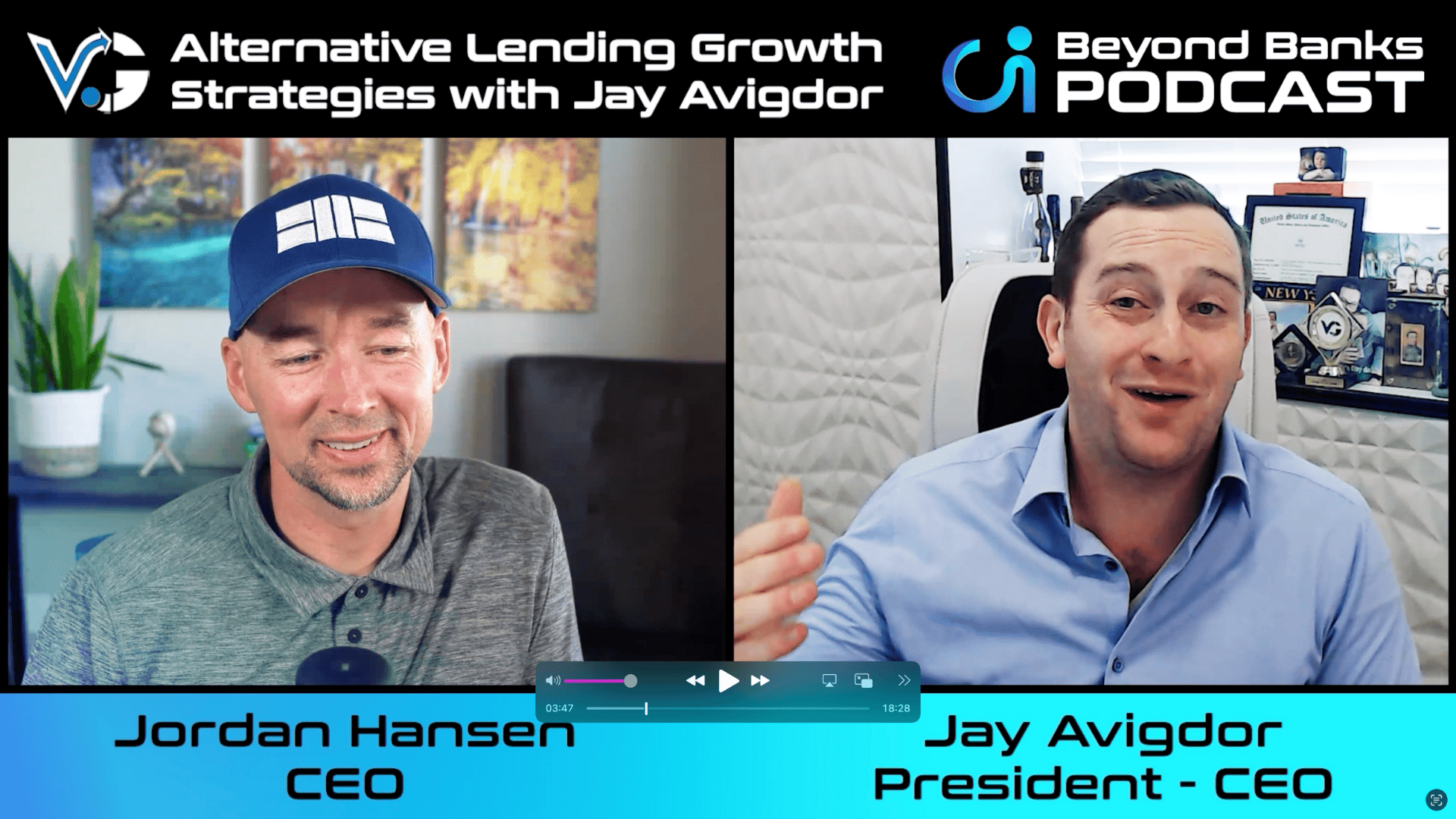

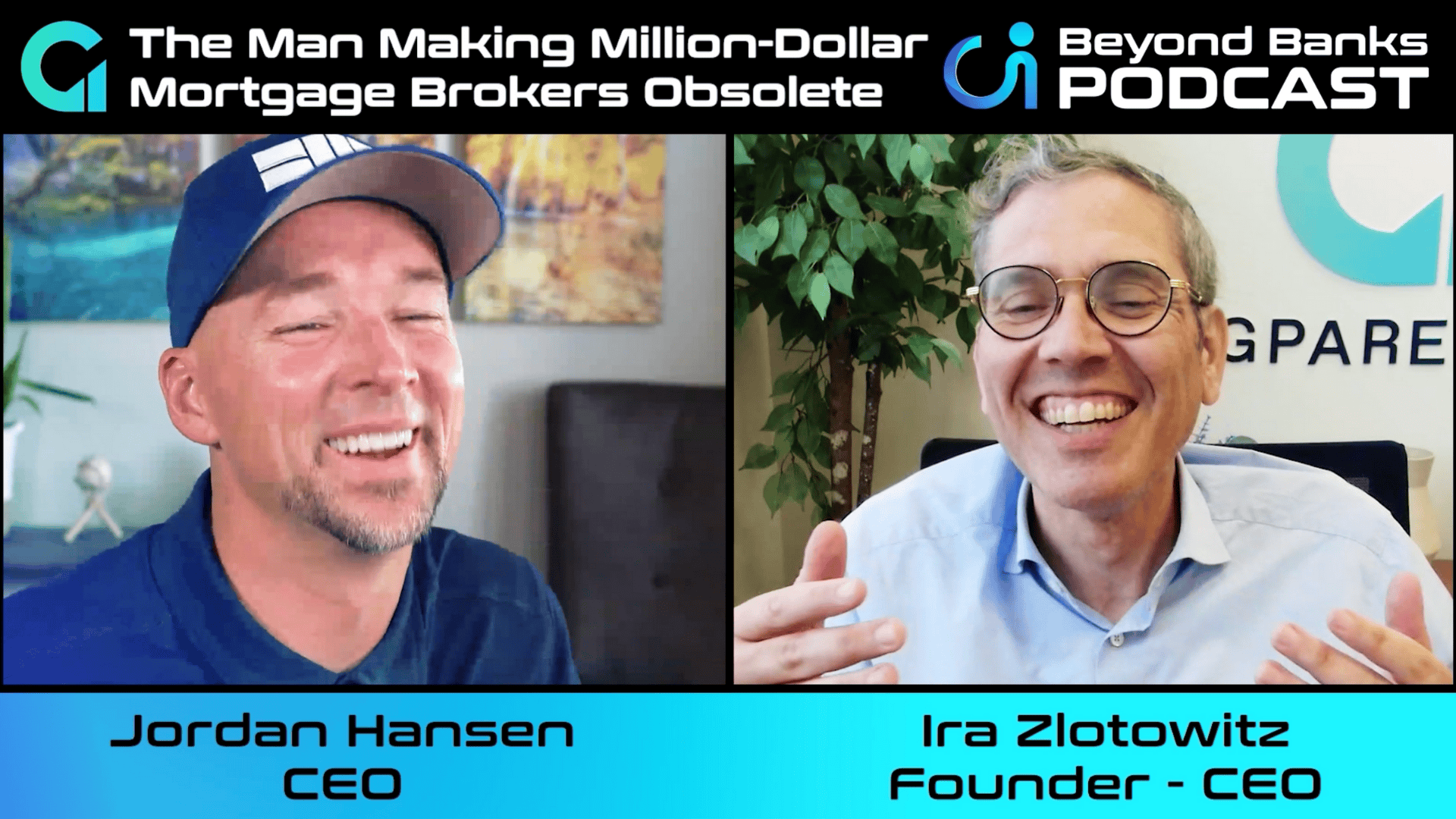

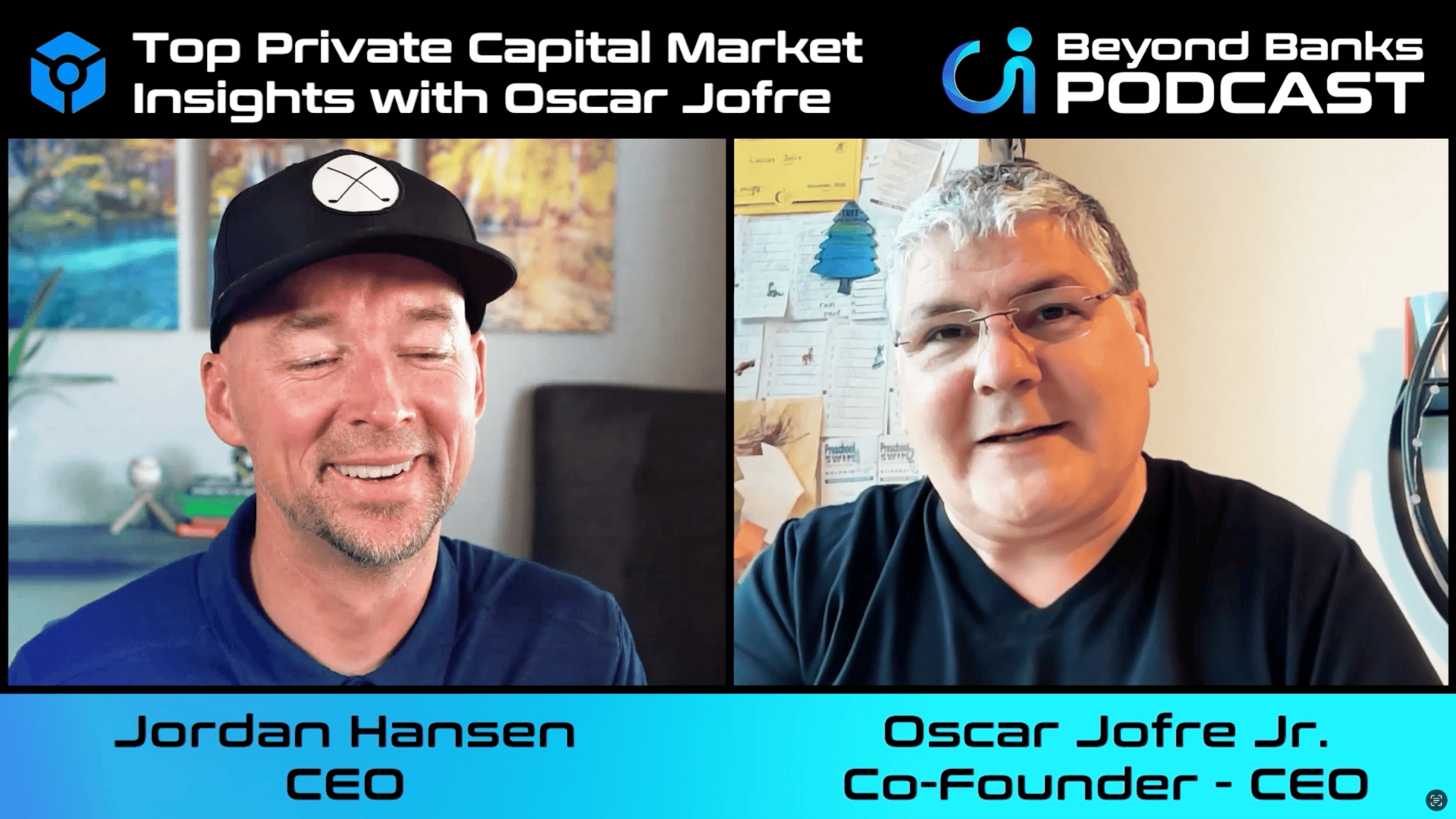

















.png)